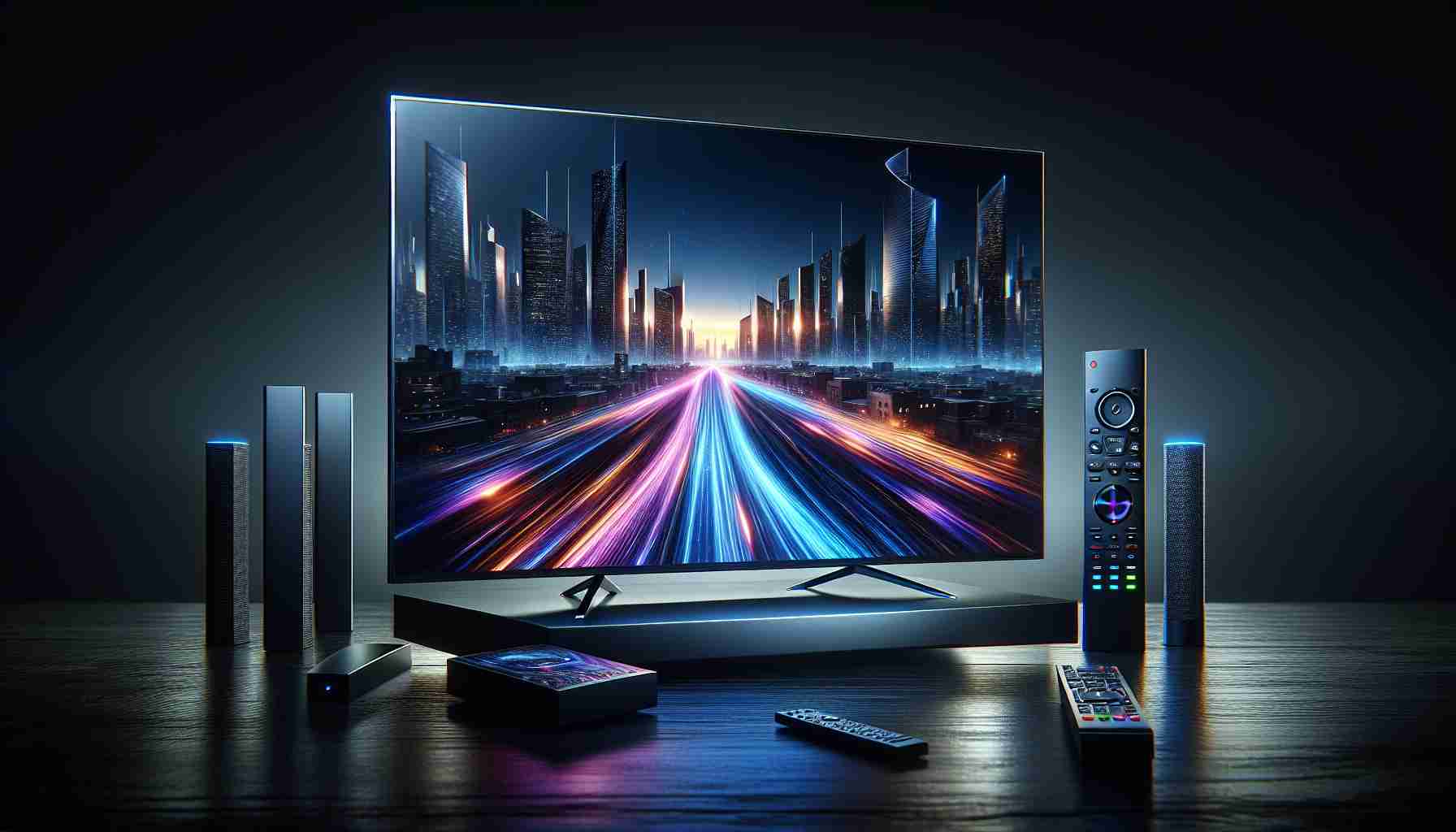Samsung’s 2024 TV Lineup Boosts AI Capabilities for Superior Picture Quality
With technology permeating every aspect of our lives, from smartphones to computers, it’s no surprise that artificial intelligence (AI) is becoming a common feature in consumer electronics like smart TVs. Samsung’s latest 2024 range of flat-screen televisions is at the forefront of this innovation, embedding AI at the heart of the viewing experience.
The magic of AI in these flat-screen TVs lies predominantly in the enhancement of picture quality through a process known as upscaling. This process involves transforming lower resolution content into the crisp, clear detail of 4K or 8K resolution without losing image quality. To achieve this feat, Samsung has developed a top-tier processor that utilizes eight times the previous number of neural networks dedicated to AI applications.
The core function of these neural networks is to refine the way images from various sources, be it sports, movies, or video games, are displayed on a higher resolution screen. Samsung’s integration of AI doesn’t stop at a baseline of a hundred treatments and filters. The beauty of its design is the incorporation of machine learning which allows the system to continuously improve its performance over time.
The challenge is ensuring that even Full HD images can fill the screen of a 4K TV, which boasts four times higher resolution, or an 8K TV, with sixteen times the resolution, without appearing pixelated or washed out. Samsung’s inventive AI algorithms rise to this challenge, delivering a remarkably clear and engaging viewing experience to consumers.
Key Questions and Answers:
1. What is AI upscaling?
AI upscaling is a technology used to convert lower-resolution content to higher resolution displays, such as 4K or 8K, in a way that enhances clarity and detail without degrading the image quality.
2. How does AI improve the viewing experience on Samsung TVs?
AI improves the viewing experience by analyzing the content, understanding various elements of the picture, and optimizing it for the displayed resolution. It also adapts and improves over time, offering a continuously enhancing viewing experience.
3. Are there any particular types of content that benefit more from AI-powered TVs?
Sports, movies, and video games, which often contain fast-moving images and require high detail, tend to benefit significantly from AI enhancements, making for a more immersive experience.
Key Challenges and Controversies:
– Accuracy of Upscaling: The accuracy of AI upscaling algorithms is a challenge, as there is a fine line between adding detail and creating an over-processed image that doesn’t look natural.
– Processing Power: Effective AI requires considerable processing power, which can impact the cost and energy consumption of the TV.
– Data Privacy: As with any AI implementation, there might be concerns about data privacy and the extent to which user viewing habits are monitored and utilized.
Advantages:
– Enhanced Image Quality: AI can significantly improve picture quality even on larger screens, making lower-resolution content more enjoyable.
– Future-Proofing: TVs that can upscale content can adapt to newer media formats and resolutions, providing longevity and a better investment.
– Personalized Experience: AI can potentially tailor the viewing experience to individual preferences and habits over time.
Disadvantages:
– Cost: The incorporation of AI technology can make these TVs more expensive than their non-AI counterparts.
– Dependence on Algorithms: Viewers are at the mercy of the AI algorithms. If these don’t work well, they can negatively impact the viewing experience.
– Complexity: The integration of AI and constant updates might create a need for more complex user interfaces and troubleshooting procedures.
Related Links:
For more information on Samsung’s products and technologies, you can visit their main website: Samsung.
Remember, these facts and observations are general and may not precisely match the implementation in Samsung’s 2024 TV lineup but are relevant considerations for the topic of AI in smart TVs.

